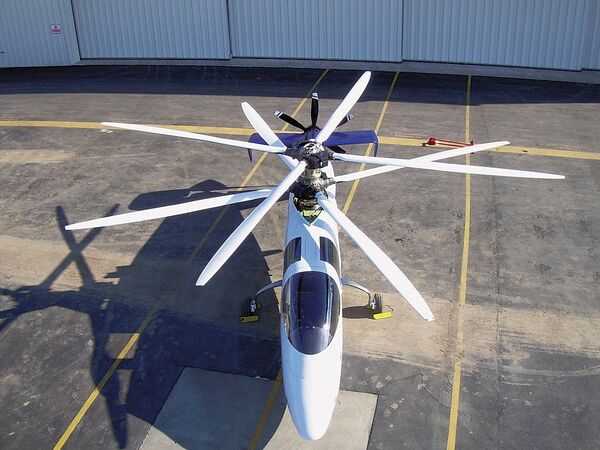Visitors check out the booth for Saudi Arabian Military Industries (SAMI) at the Dubai Airshow in 2023. (Agnes Helou / Breaking Defense)
BEIRUT — At this month’s World Defense Show in Saudi Arabia, the desire of Western defense firms to tap into the Kingdom’s seemingly unlimited budget was evident.
But along with splashy displays and public glad-handing was an undercurrent of concern among executives, as some of the biggest defense companies in the world are still trying to decipher the Kingdom’s stringent new local production mandates, especially its requirement for local headquarters, weeks after a key deadline appears to have passed.
“We are committed to the Kingdom, and we want to set up operations here. Discussions are mature. But we’re waiting to understand a little bit more of the regulations [and] how it applies to our industry before we actually can commit to actually having a regional office,” Adrian Kemps, an L3Harris executive and the CEO of a joint venture between L3 and Saudi Arabian Military Industries (SAMI), told Breaking Defense. “So we are moving in that direction. We definitely want to comply.”
Kemps is not alone. According to a interviews with Western and Gulf industry officials, the lingering confusion has colored, if not dampened, enthusiasm for doing business with the Kingdom — and has prompted some creative solutions meant to appease Riyadh while maintaining operations elsewhere in the Gulf. But the clock is ticking.
“At the heart of it, the Saudi leadership believes that the [United Arab Emirates] and others have been feeding off the Saudi economy for years by playing host to companies that generate most of their revenue in the Kingdom,” Firas Maksad, director of strategic outreach and a senior fellow at the Middle East Institute, told Breaking Defense. “They are determined to change that and, despite extensions and exemptions, will certainly enforce these new regulations.”
Defense Firms Squint At Vision 2030
As part of its sprawling Vision 2030 domestic production effort, in February 2021 Saudi Arabia announced a number of mandates changing how foreign companies, including defense firms, can work with the government. Leading the stipulations: 50 percent of production must be done locally, and the companies must establish a “regional headquarters” in country by Jan. 1, 2024.
Saudi finance minister Mohammed al-Jadaan told Reuters at the time, “If a company refused to move their headquarters to Saudi Arabia it is absolutely their right and they will continue to have the freedom to work with the private sector in Saudi Arabia. … But as long as it is related to the government contracts, they will have to have their regional headquarters here.”
The problem for companies that already do or want to do business with Riyadh is that they’re unclear on exactly what Saudi Arabia’s Ministry of Investment (MISA) will accept. Several firms already have offices in next door United Arab Emirates; can they have multiple “headquarters” in the region? What if you open an office in Saudi Arabia but really do the actual business in UAE? Would forming a joint venture with a Saudi firm solve the problem?
Weeks after Jan. 1, business does not appear to have changed much for Western defense firms in the Kingdom, but several companies said they’re actively in touch with government officials to sort out what they need to do to stay in Riyadh’s good graces. MISA officials did not respond to a request for comment for this report.
“I don’t know if we read the [regional headquarters] request that specifically but we are working with the government to make sure that we support whatever the request turns out to be in the right way and, again, I think our interpretation may be a little bit different than you described,” Boeing Defense, Space & Security President and CEO Ted Colbert told Breaking Defense this month in response to questions about having to make Saudi the regional hub.
Some firms could simply say that they have separate “regional” offices in Saudi Arabia and the United Arab Emirates, one being more “symbolic” than functional, according to Ryan Bohl, a senior Middle East and North Africa analyst at the RANE Network.
They would be “setting up the headquarters to appease the Saudis, and they could take the option to set up a more or less symbolic headquarters that ticks the box of the regulation, but keep substantial operations in a place where they might have less difficulty with recruitment and retainment like Dubai,” Bohl told Breaking Defense.
Several major firms already have offices in both places.
Boeing, for instance, has an office in KSA and another in UAE, and both report to their headquarters in the US. In a statement Boeing said that is “aware of the regulations published by the Ministry of Investment requiring international companies with operations in the region to establish a regional headquarters in Saudi Arabia enabling them to participate in government tenders. Boeing abides by the laws and regulations of all countries in which it does business.”
The aerospace giant “has applied for a license to establish regional headquarters in KSA, in compliance with the Saudi government requirements,” but it’s not clear how that move would impact the Emirati headquarters, if at all. Boeing already has an aircraft maintenance joint venture with Saudi Arabia on the books.
Lockheed Martin also has two major regional offices in the Middle East, with two separate regional executives: the first in UAE who handles the firms operations in UAE, Bahrain, Kuwait, Qatar, Oman, Jordan, Lebanon, Iraq and Pakistan, while the second office is located in Saudi Arabia and operates KSA and Africa.
“Lockheed Martin has been present in Saudi Arabia for almost 60 years and has several ongoing projects and investments that underscore our efforts as a strategic partner to the Kingdom. Given the unique nature of our business, we are in discussions with the Ministry of Investment in connection with the RHQ [regional headquarters] program,” the company said in a statement.
Lockheed also agreed to a joint venture with Saudi Arabian Military Industries (SAMI) in February 2021, just days after the Kingdom’s regional headquarters mandate came down.
When asked about regional plans, US-based RTX offered a noncommittal statement, saying, “We remain committed to our continued investment and presence in the Kingdom of Saudi Arabia. We do not have specific details on regional headquarters to share at this time. We continue to build strong partnerships in Saudi Arabia, contributing to the growth and development of the Kingdom.”
L3Harris, as noted above, is working out the question of a regional headquarters, and advertises on its website that that it is the “first U.S. defense contractor to sign a joint venture agreement” with SAMI in 2020.
Airbus and Northrop Grumman didn’t respond to Breaking Defense’s request for comment.
Companies Expected To Make The Move
As companies try to sort out what exactly Vision 2030 means for them, analysts agreed that Riyadh isn’t likely to drop the issue.
“These regulations will certainly force many foreign companies to make hard choices, but they’ve also had a long runway. Saudi Arabia did not spring any surprises. It gave these businesses over two years to adjust,” said MEI’s Maksad. “Foreign firms that are direct beneficiaries of lucrative Saudi government contracts will most likely be the first to relocate. […] Firms who are invested in the Saudi market but do not have direct government dealings will likely try to bide themselves more time.”
Bohl said that Saudi Arabia’s “demand on this front is an attempt to directly pry away some established businesses from the United Arab Emirates and Qatar who both have lifestyle and cultural advantages that Riyadh currently can’t compete with. I think it’s also attempting to change the narrative around business sentiment in the region to make Saudi Arabia a more viable competitor with those countries.”
He added that he doesn’t expect the “Saudis [to] be overly harsh with enforcing this regulation for the reason that they’re looking to reshape their business reputation positively more than anything else.”
From his point of view, Theodore Karasik, a senior advisor at the Gulf State Analytics think tank, told Breaking Defense that it’s more cost effective for large companies to make such a move.
“Some companies have moved their headquarters because they do have business in Saudi Arabia more than they do in the UAE,” Karasik said. “But at the same time the UAE fills the gap in their own unique way that really makes them indispensable as part of lower Gulf state economics with very tight relations with global financial firms.”
Technology Transfer Demands
While the headquarters question is blurry, another stipulation for Vision 2030 — that international firms must transfer 50 percent of technology for production to the Kingdom — has been both clearer and easier to meet through the existing local offices or joint ventures.
“As His Royal Highness Prince Mohammed [bin Salman Al Saud] said seven years ago, there will be no armament transaction without localization. To us, this is our motto … there’ll be no transaction without serious, decent and important localization in Saudi Arabia,” Ahmad Al-Ohali, the governor of the Saudi government’s General Authority for Military Industries (GAMI), told Breaking Defense during World Defense Show.
Lockheed Martin has started cooperation with two Saudi firms, the Middle East Propulsion Company (MEPC) and Arabian International Company (AIC), to produce Terminal High Altitude Area Defense (THAAD), paving the way for a first international customer to locally produce parts of the anti-ballistic missile system.
The agreements are designed to “localize the manufacture of THAAD interceptor canister and THAAD Missile Round Pallet in Saudi Arabia,” according to a Lockheed statement.
During World Defense Show 2024, Turkish firm Havelsan signed a memorandum of understanding MOU with MISA and GAMI to establish an office in the Kingdom. The office is expected to be inaugurated in the near future and will help in technology transfer, a Havelsan spokesperson told Breaking Defense.
From its side, TRD Singapore, a producer of counter-drone systems, launched a joint venture with Saudi-based firm RAKAA Security & Military Supplies, dubbed TRD Middle East Industry, to help transfer the technology of its Orion counter drone solution in KSA.
“At first stage, [we target] quick delivery from Singapore, [then] we will see progressively the local [Saudi] content increase [from] assembly for [eventually] the local company will be able to produce 100 [percent of the platforms],” Sam Ong, TRD Singapore CEO and the Vice Chairman of the Board of Directors of TRD Middle East Industry told Breaking Defense during WDS.
He added that the Singapore-based firm owns 30 percent of stakes while the Saudi companies own 70 percent.
In the meantime, amid geopolitical conflict in the region and the ever-present threat from Iran, Saudi Arabia’s appetite for defense production seems as high as ever, as is the willingness for major international firms to do what’s necessary to stay in the game.




















Discussion about this post